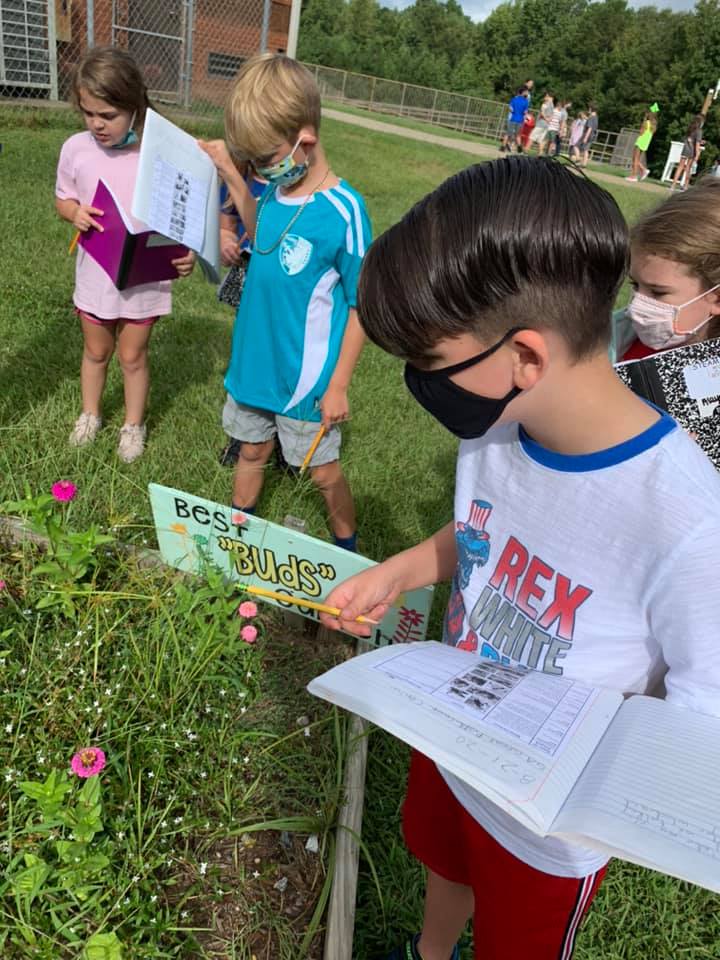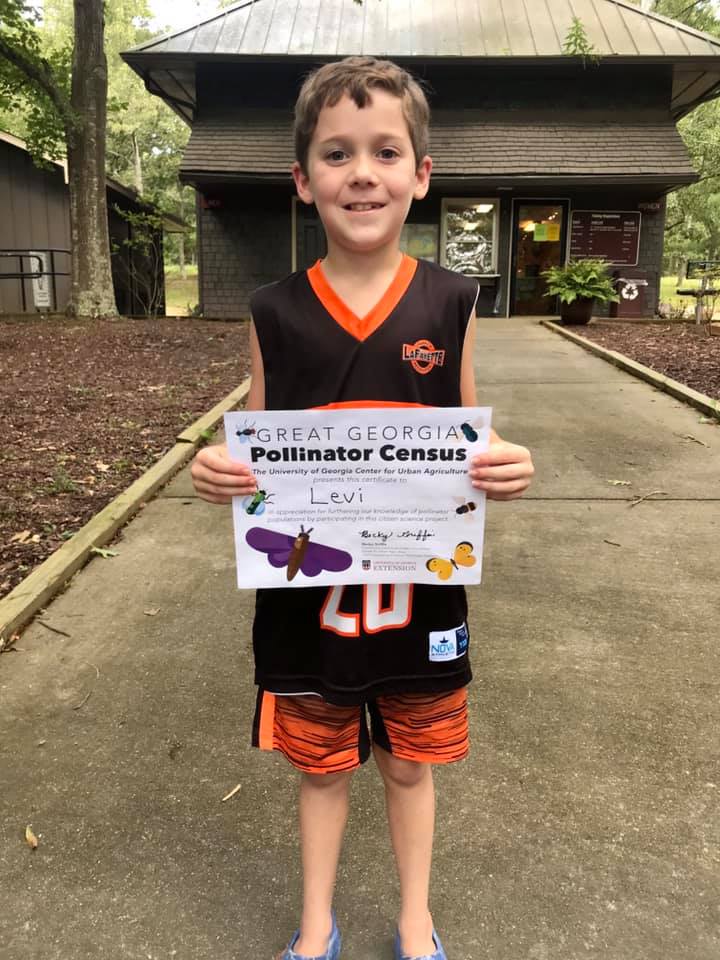- Griffin, Rebecca Hunt
Summary
The 2nd annual Great Georgia Pollinator Census occurred on August 21st and 22nd, 2020. The COVID-19 pandemic created challenges in planning and executing this citizen science project
Situation
During the first Great Georgia Pollinator Census over 4,000 Georgians participated. Over 100 public events occurred through Extension agents and project partners leading up to the 2019 census and on the census dates. One hundred and thirty five schools used the project to educate students on entomology and have them count insects for the census. Due to COVID-19 during the time of the 2020 census, public gatherings were discouraged. Many schools systems announced later starting dates, after the census. Other schools were teaching in-person, virtually or a hybrid of both. And, policy on public safety changed frequently. These factors created a challenge for the census project coordinator in planning and meeting the needs of the project participants safely.
Response
The project coordinator virtually met with teachers to determine how the project could best fit into the school curriculum during the pandemic. Resources were created that allowed teachers to use the census as a no-cost science, technology, engineering, art and math (STEAM) program regardless of the teaching style used at the school. Teaching tools were developed that would allow teachers to educate on insects virtually and have their students count insects at home, sending census results back to the teacher on-line. These counts were uploaded to the census website and used in classroom lessons such as graphing, math skills, biology, etc. Schools that were meeting in-person ran the census similar to last year’s project, implementing policies on social distancing and the wearing of masks. For the general public the emphasis switched from encouraging participants to attend a public event to having participants counting at home with their families. Resources were added to the website encouraging families to have an entire weekend of insect activity. Ideas on insect crafts for younger children, movie recommendations for the family, and games for all were shared. A song playlist was created on the music platform Spotify featuring songs such as “Lady Bug Picnic” and “There Ain’t No Bug on Me.” Social media promoted this approach to the census and the project Facebook group, Georgia Pollinator Census, expanded to approximately 2,000 members. #FunFactFridays continued to be shared as well as insect identification information and quizzes. The project coordinator, Extension agents and project partners created online content such as webinars, videos and Facebook live events to educate the public on pollinator habitat, insect identification and how to successfully participate in the census. During the pandemic there was an increase interest in home gardening. As in 2019, the project provided resources to create sustainable pollinator habitat in Georgia, with online webinars and social media content. In 2020, these efforts were expanded.
Impact
Three thousand seven hundred and fifty-five Georgians participated in the 2020 Great Georgia Pollinator Census documenting almost 83,000 insect flower visits. Schools participated as part of their local STEAM program. Businesses such as Bank of America, Creative Enterprises and Project Chimp hosted counting events. Scottish Rite Hospital led counting at their hospital garden. The Daughters of the Revolution had members from chapters across the state participate. Participants reported that 525 new pollinator spaces were created as a part of the census. Sixty-five percent of participants indicated that participating in the census changed their understanding of the benefits provided by insects that visit their gardens. Comments from participants included: The census serves as an ideal platform for ecological/entomological discussion and education. I loved learning about the various categories of interest that were included in the census, and that so many different types of insects are considered pollinators. Enjoyed my 12 year old granddaughter helping with the count. Comments from an educator and a student: Wasps are cool and not scary! The students loved learning about the different pollinators and were fascinated with all the ones that they saw landing on the flower they were observing.
State Issue
Sustainability, Conservation, & the Environment
Details
- Year: 2020
- Geographic Scope: State
- County: Union
- Location: Georgia Mountain Research and Education Center, Blairsville
-
Program Areas:
- Agriculture & Natural Resources
Author
Collaborator(s)
CAES Collaborator(s)
- Braman, George Rich
- Braman, Susan K
Extension Impact


